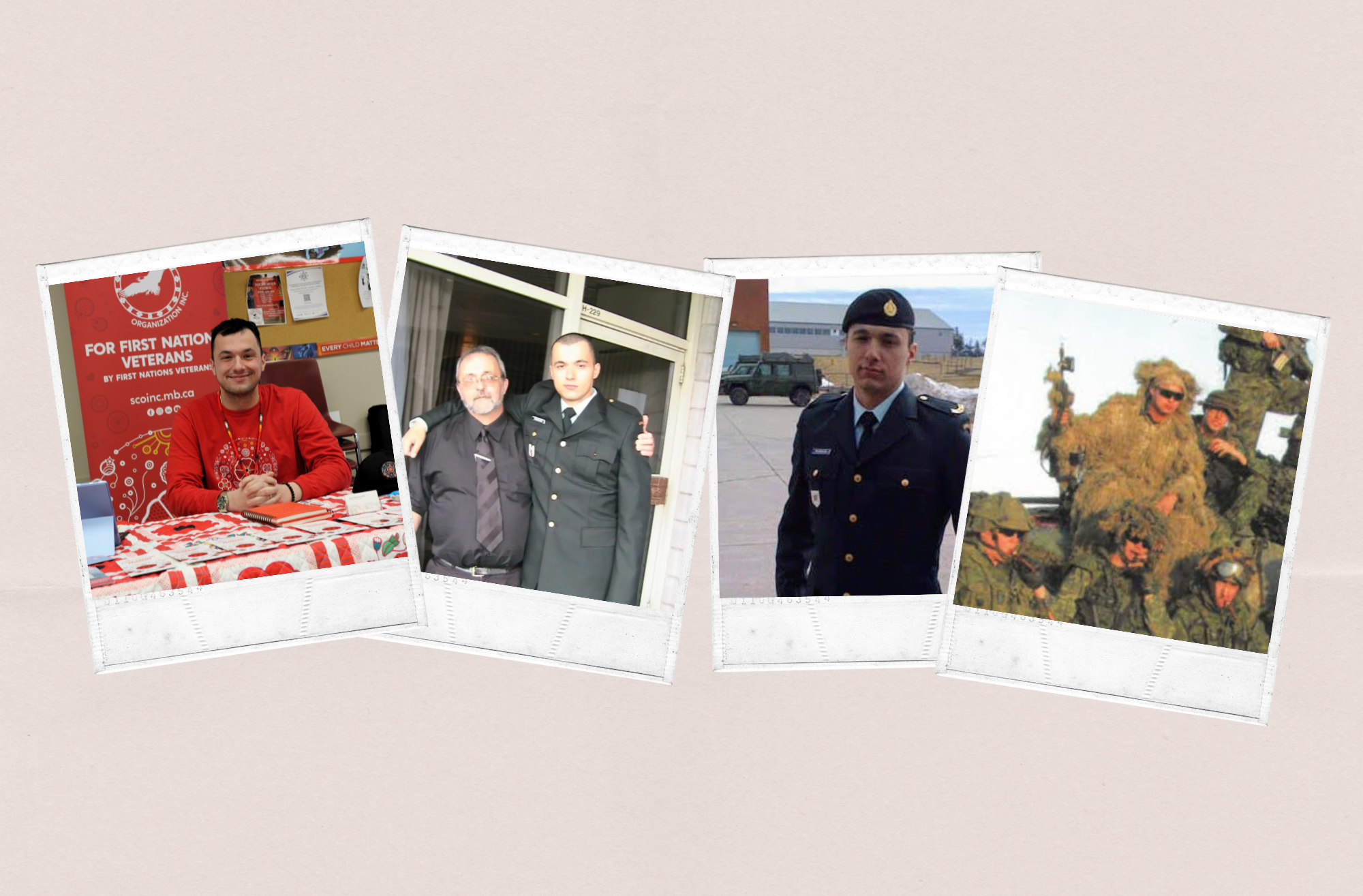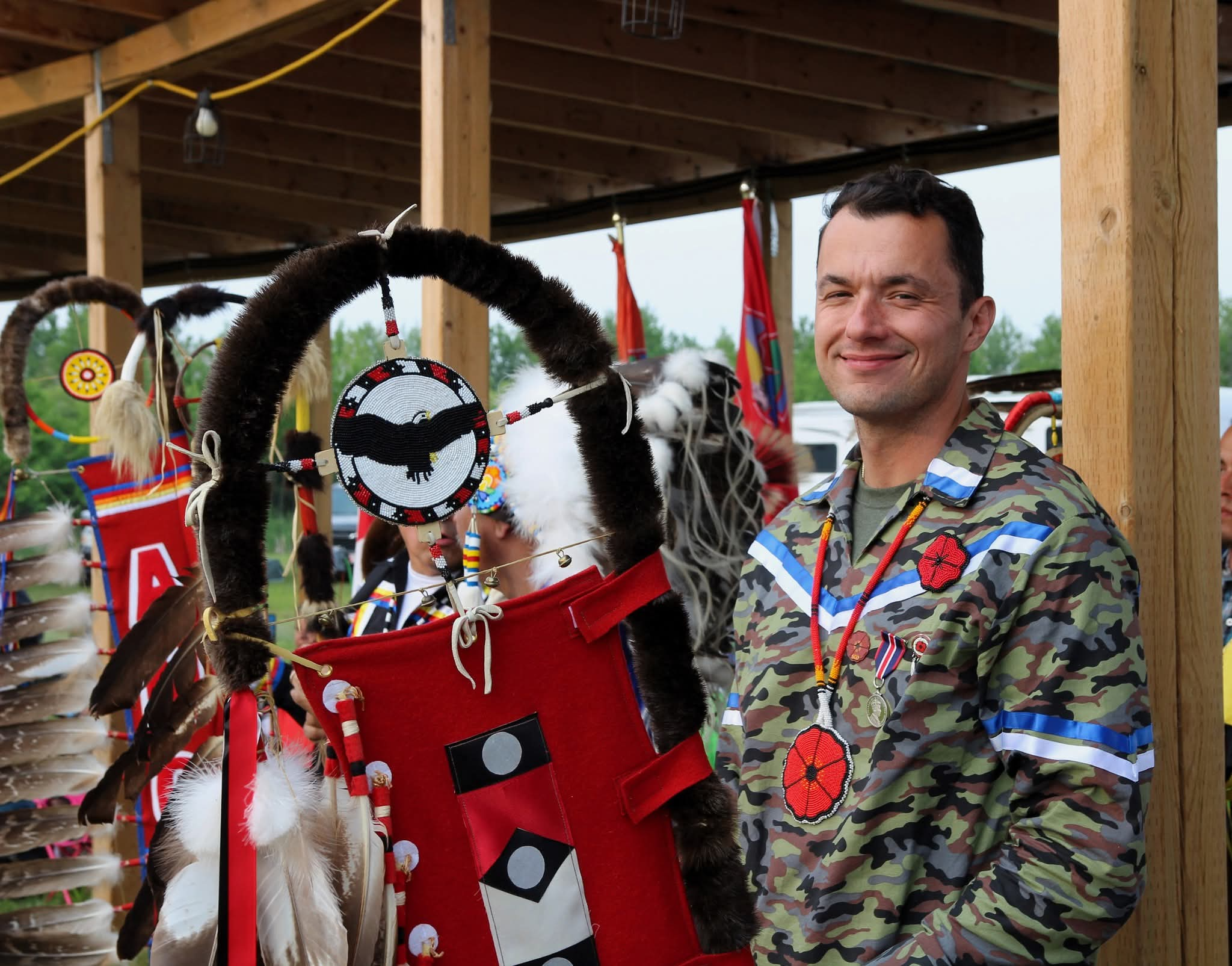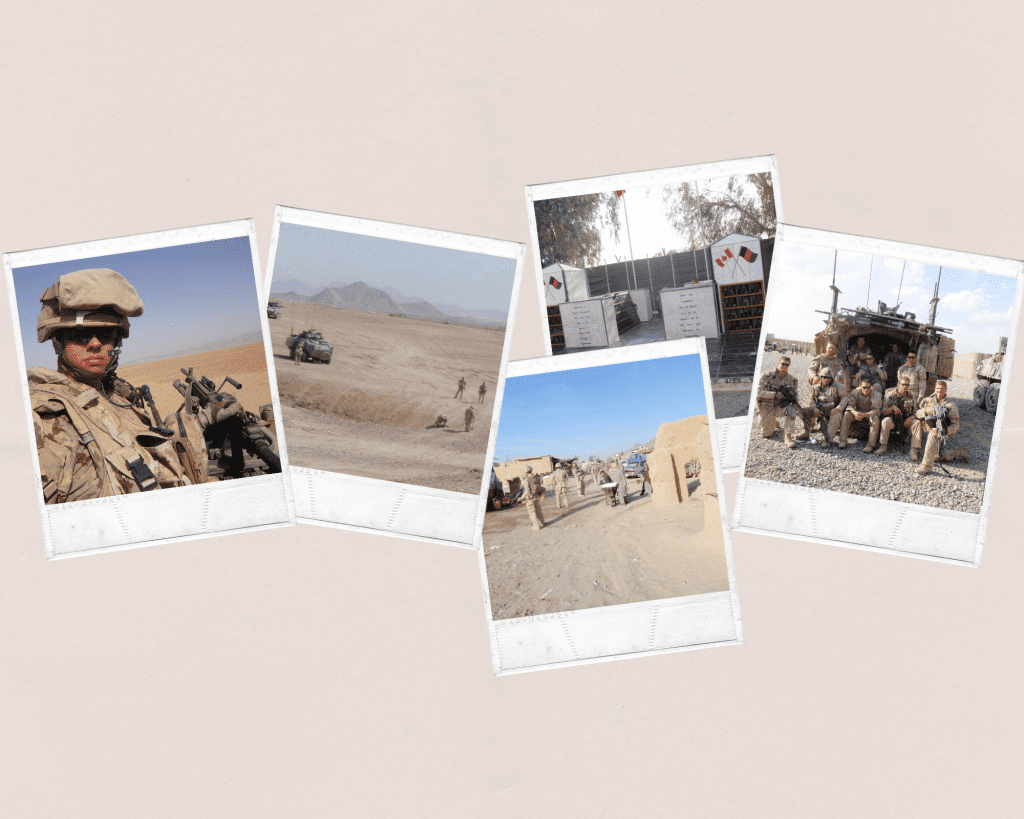- 2025-10-08
- Blog
From service to ceremony: A First Nation Veteran’s journey

I didn’t grow up with much. For a time, my Family lived in poverty and sometimes without a home. Life wasn’t easy. But when I joined the Canadian Armed Forces (CAF), I found something that gave me direction: purpose, discipline and pride. The military became my second Family and shaped who I am today.
I am a First Nation Veteran from Opaskwayak Cree Nation and I served eight years in the CAF Regular Force. I served five years with the Army, then did an occupation transfer to the Navy and did three years before finishing my contract. My time in the Army was one of the most challenging and rewarding experiences of my life. The military gave me the structure I had been missing growing up. As a kid, I moved around a lot, switched between households, and for a period of time we didn’t have a home at all. In uniform, I found stability, direction and a clear sense of purpose. The training pushed me to my limits and gave me the strength to take on challenges I never thought possible. At the same time, those years also tested my mental health. As a First Nation soldier, I experienced racism and harassment from some of the people I admired most — decorated Afghanistan Veterans I looked up to. Reconciling the deep respect I had for them and their service with the hurtful way they treated me was confusing, painful and drastically impacted my self-esteem. For a long time, it changed how I thought about myself and about others.
When I transitioned to the Navy, things began to shift. The environment was different and I slowly started to regain my confidence and self-esteem. I remembered what I loved about serving: the camaraderie, the pride in wearing the uniform and the sense of belonging to something bigger than myself. Those years gave me back the confidence that I thought I had lost.
Eventually, I began to lose friends and mentors in the Canadian Forces to posttraumatic stress disorder (PTSD). That lit a fire in me and I made the decision to leave the Forces and pursue a university degree in social work. My goal was to support Veterans and give back to the military that had given me purpose and stability at a time when I needed it most.
“Leaving the Forces wasn’t easy. I struggled with culture shock and with the question of who I was without the uniform. Over time, I found that identity in my First Nations culture and in ceremony. Returning to the land and embracing those teachings gave me strength and helped me rebuild a sense of self after service.”
— Justin Woodcock
Today, that journey has led me to build the First Nations Veterans Program of the Southern Chiefs’ Organization Inc., the first in Canada. It is a space where we walk together, support each other and find cultural identity and healing beyond our service. Our program embraces culture and ceremony as a way of healing service-related trauma and providing peer support.
Looking back, I see my journey as one of resilience. The hardships of my childhood, the challenges I faced in the military and the healing I’ve had to do since — all of it has shaped me into the person I am today. I am grateful for the opportunities I’ve had to serve, both in uniform and my current work, and I hope to always serve the public in some capacity.
As Indigenous Veterans Day approaches, I think about the generations of Indigenous service members who came before me, many of whom never received the recognition or support they deserved. I carry their stories with me in my work and I hope that by sharing my own, I can help others feel less alone. Service can be difficult, but it connects us to one another, and that connection gives me healing and purpose.
Ekosi.
— Justin
Justin Woodcock
Lord Strathcona’s Horse (2009–2014)
His Majesty’s Colonial Ship Regina (2014–2017)
Opaskwayak Cree Nation

Are you a Veteran or Family member with a story to tell? Get in touch with us and you may be featured on this blog!

